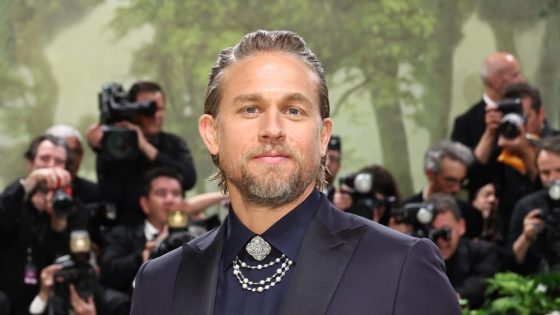At 38, I’m the first of my same-age friends to hit menopause. I’m in medically-induced menopause after beating breast cancer last year. In search of community, I spend a lot of time lurking in online forums dedicated to talking about menopause, perimenopause, and all the ~surprises~ that this time of life can bring. I’ve learned so much from reading about the experiences of others, and it helps me feel less alone.
FYI: Perimenopause refers to the years when a person’s estrogen levels start to dip, commonly leading to symptoms like hot flashes, night sweats, and more. Menopause is typically diagnosed when a person hasn’t had a period for 12 months. Medical menopause is when drugs are used to block hormones to treat another medical condition, like certain cancers.
The average age of menopause in the US is 51 — but perimenopause can start as early as your 30s.
Lately, I’ve noticed a bit of a vibe shift as conversations about Project 2025 are popping up more and more in previously-non-political meno communities.
Heritage Foundation president celebrates Supreme Court presidential immunity ruling: “We are in the process of the second American Revolution, which will remain bloodless if the left allows it to be” https://t.co/ndMJlNlUKH
— Media Matters (@mmfa) July 3, 2024
Project 2025 is a 922-page document from the Heritage Foundation that lays out plans for the first 180 days of the next Republican presidency. The plan includes proposals that would limit access to birth control, and it calls on the FDA to revoke its approval of medication abortions. It also contains a number of attacks on LGBTQ+ rights, like its call for criminalizing porn which defines “transgenderism” as a pornographic ideology. It’s scary stuff.
Though the word “menopause” doesn’t appear in Project 2025, attacks on birth control access and trans healthcare have some folks worried that putting a Republican in the White House could have damaging effects on the menopause community, too. Because the thing that women’s reproductive rights, trans healthcare, and menopause care all have in common are hormonal-based medications.

Anita Mikkilineni, MD, Assistant Professor of Obstetrics and Gynecology at George Washington University, told BuzzFeed, “For menopause, the goal is to alleviate symptoms of menopause (hot flashes, night sweats, vaginal dryness, mood swings) and replace hormones that the ovaries are no longer producing in a sufficient amount.”
She went on to explain that hormone replacement therapy in menopause can do even more than reduce bothersome symptoms. “Arguably, it also helps prevent osteoporosis, colon cancer, things of that nature, and the hormones we use are primarily estrogen, sometimes combined with progesterone or progestins.” If you’ve ever used hormonal contraception, you may have taken the same hormones but at lower doses.
Patricio Nahuelhual / Getty Images
Hormones are also used by transgender people who choose to undergo medical transition. This can include estrogen, testosterone, and hormone blockers. In fact, the same injection I get every month to prevent breast cancer recurrence is also given as a puberty blocker for transgender youth, and in both cases, it’s a potentially lifesaving medication.
Hormones and hormone blockers do so many different things for so many different people. A hormonal IUD helps my friend with endometriosis have lighter, less painful periods. A hormone prescription helps my trans-masculine friend live as their truest and most joyful self. And hormone blockers help me sleep easier at night by keeping my cancer from coming back. All of our stories are bound up in each other. It’s one of the many reasons why I believe that trans rights are human rights, period.
Unfortunately, hormone replacement therapy for menopause has gotten an undeserved bad reputation. Dr. Mikkilineni explained that one highly publicized yet deeply flawed study on hormone replacement therapy in menopause that came out in 2002 scared a generation of women away from using HRT in perimenopause and menopause. Though the study has been widely critiqued, some doctors today are still wary of prescribing hormone replacement therapy for menopausal patients.


The Women’s Health Initiative findings seemed to show increased risks of breast cancer and heart disease in those using hormone replacement therapy for menopause. However, according to Dr. Mikkilineni, the study looked at the wrong age range of patients and used forms of HRT that aren’t widely prescribed today in one-size-fits-all doses that are also no longer recommended.
“Now we are finally doing a ton of advocacy and hard work to reverse the damage that that kind of media frenzy had,” Dr. Mikkilineni said. She shared that she sees patients who minimize their menopausal symptoms, and she’s passionate about helping them actually feel better. “Just because this is something that happens doesn’t mean you have to be okay with it. No one tells men who have erectile dysfunction, ‘You should just live with it,’ right?”
Science Photo Library / Getty Images/Science Photo Library RF
Sadly, the HRT stigma continues to make it difficult for folks to get the care they want and need — even without a Republican in power. I often read posts from people who’ve had to go to multiple doctors to finally be believed about their symptoms and get a prescription for hormones. Some doctors still hesitate to prescribe actual hormone therapy and instead put perimenopausal patients on hormonal birth control pills, which typically contain lower doses of hormones than true hormone replacement therapy.
I recently read a post from a woman who is looking into stockpiling her birth control pills to keep her menopausal symptoms under control in the event of a Republican win in November. In the comments, others shared how they’re getting their hands on a few extra packs of birth control just in case. It left me feeling deeply sad, and I hope that her fears never, ever come to pass.
Are menopausal women right to be concerned? Dr. Mikkilineni shared her take, saying, “It’s a really tough time to be an OB-GYN in general, but any kind of restrictions that affect bodily autonomy, access to care, and the ability of a doctor to practice evidence-based medicine are hugely concerning. I feel like Project 2025 and regulations on reproductive health policies will absolutely have a broader impact on healthcare and the ability of physicians to practice evidence-based medicine.”


She elaborated, “A lot of these propositions are completely ignoring the value of people who have dedicated their lives to research, like the American Medical Association, the Academy of Pediatrics, the World Professional Association for Transgender Health. These are institutions that, whenever they come out with a guideline, they have looked at all of the research already. They have looked at the quality of the studies that were done, and a collective group of people who have been doing medicine for decades sit down together and debate about what is in the patient’s best interest in the most brutal and honest way possible, and then come out with hard-fought guidelines.”
Tetra Images / Getty Images/Tetra images RF
Casting aside decades of scientific research in favor of laws based on one group’s religious preferences, like the proposals contained in Project 2025, sets a dangerous precedent for everyone’s healthcare in America. In a system where precedent is often used when making legislation, having the government interfere in one form of medical treatment could open the door to more and more unscientific regulations. It also goes against the principles of religious freedom that this country was founded on.
Should a president with no medical background make medical decisions for hundreds of millions of people? Given the Republican party’s grim track record on understanding even the most basic facts about the female reproductive system, I vote no.
It’s especially chilling for menopausal women because of the current discourse about women’s place in society. Conservatives like Republican vice presidential candidate J.D. Vance have implied that childless women don’t have value. Taken with anti-abortion state laws that have driven up maternal death rates, it adds up to a sinking feeling that conservatives don’t value women beyond our capacity to bear children. So what are we worth to them in menopause, when that part of our lives is over?


As one woman put it in a recent r/Menopause thread discussing Project 2025, “Women in peri/meno are no longer BREEDERS, and therefore of no/little value. God forbid we should have reached this stage without having children biologically (or — worse yet, apparently — with cats in our house!)!”
Alex Wroblewski / AFP via Getty Images
Women were told that we were being hysterical for worrying that former president Donald Trump would overturn Roe v. Wade in his first term. Then, we all watched helplessly as his Supreme Court appointees did just that. Trump has shown us who he is. It’s up to all of us to vote accordingly.
Source Agencies



